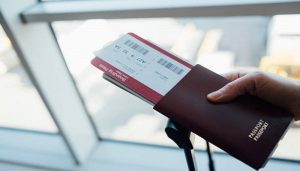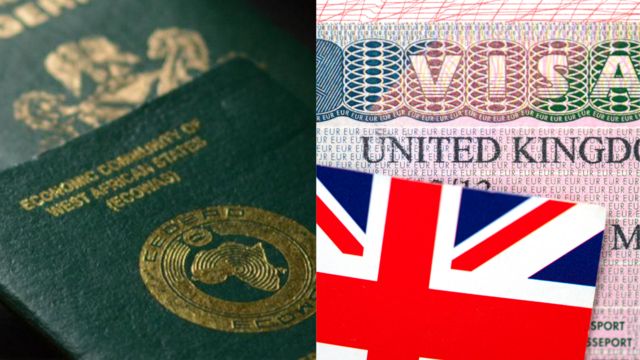Are you a Tech guru, freelancer, blogger, YouTuber, developer, programmer, content writer, social media influencer, graphic designer, virtual Assistant, digital marketer, or someone else who works from home? Come closer, this is for you! Canada has recently introduced the Digital Nomad VISA.
A digital nomad is someone who works remotely while traveling and living in different locations, using a laptop and an internet connection to complete job duties from anywhere in the world.
Canada Digital Nomad VISA allows you to work remotely while living in Canada. To qualify for this visa, you must work for an employer or company outside of Canada or have a business outside of Canada that you can manage from anywhere in the world.

This article will cover all the details that you need to apply to immigrate to Canada under the Digital Nomad visa program, including the eligibility criteria, the application process, and the benefits of choosing this option. It will also provide a list of foreign nationals who are qualified to work as digital nomads in Canada.
Read on to find out how to immigrate to Canada as a remote worker from Nigeria, Ghana, South Africa, etc.
Table of Contents
- 1 What is the Canada Digital Nomad Program?
- 2 How is Canada benefiting from the digital nomad program?
- 3 Who can Apply for Canada digital nomad visa?
- 4 How to apply for Canada digital nomad visa?
- 5 What is the best city in Canada for digital nomads?
- 6 Which Countries are eligible for a Canadian digital nomad visa?
What is the Canada Digital Nomad Program?
A Canada Digital Nomad Program is a visa program about to be introduced by Immigration, Refugees, and Citizenship Canada (IRCC). The program is aimed at promoting Canada as a destination for remote workers, thereby broadening the country’s talent base for the future.
Under current Canadian immigration rules, you only need a visitor status to relocate to Canada for up to six months at a time while you perform your job remotely for a foreign employer.
In addition, you stand a chance of getting a temporary work permit or even permanent residence when you receive a job offer from a Canadian company. This is why the new visa scheme is a no-brainer: those who could not previously relocate to Canada can now do so through the Canada Digital Nomad Program.
Here are the numerous benefits you stand to get as a digital nomad:
- You can enjoy the great quality of life that Canada has to offer, such as its cultural diversity, natural beauty, social security, health care system, and educational opportunities.
- You can visit different places in Canada to experience the country’s diverse climate, geography, and culture.
- You can network with local experts and entrepreneurs in tech and other industries to possibly find new opportunities or collaborations.
- If you accept a job offer from a Canadian company, you can apply for a temporary work permit or even permanent residence.
How is Canada benefiting from the digital nomad program?
You may be wondering what the benefits are for Canada in providing these digital nomad visas. To answer that question, you must understand that if a digital nomad earning money from non-Canadian sources settles in Canada, that digital nomad must begin paying taxes on commodities, purchases, and in various other utilities.
With that, digital nomads who start working in Canada for their foreign employers will bring non-Canadian income-sourced funds to Canada, which will benefit Canada in terms of foreign currency landing on their soil, and Canada will also benefit from job opportunity creation by these digital nomads as they settle down and expand their online business/work.
In addition, Canada intends to grant permanent residency to digital nomads who begin living in Canada, earn money from non-Canadian corporations, then bring that money back to Canada, thereby empowering local Canadians through job creation.

Who can Apply for Canada digital nomad visa?
Wondering whether you are eligible for this visa as a remote worker from Nigeria? Well, the good news is that if you work remotely for any international company, if you work as a blogger, YouTuber, or freelancer, or run your own online business, or if you have successful apps that generate profitable income for you from non-Canadian sources, you will be eligible to apply for a Canada digital nomad visa.
However, the eligibility criteria for Canada’s digital nomad program have not yet been completely defined, as the government is still working with public and private partners to develop the policy. However, based on current information, the following requirements may potentially apply:
- You must be working for a foreign employer remotely from anywhere in the world.
- You must hold a valid passport along with a visitor visa.
- Certainly, you will need sufficient funds to support yourself and your family during your stay in Canada.
- You must hold health insurance coverage.
- You must obey all Canadian laws and adhere to the terms and conditions of your visitor status.
You may also need other supporting documents, which include:
- Biometric information, such as fingerprints and photos.
- A police certificate to prove your criminal record.
- A medical exam to prove your health condition.
How to apply for Canada digital nomad visa?
The full details of the online application process for Canada’s digital nomad visa are yet to be announced and established. But, according to the information currently available, the following steps may potentially apply:
- Step 1: Browse the Canada immigration website and check your eligibility status. This information is available on the official website of Immigration, Refugees, and Citizenship Canada.
- Step 2: Fill out the online application form to find out if you are eligible for a Canadian Visitor visa and to develop a personal checklist of all the documents you will need to submit with your application.
- Step 3: Review the answers and then print the ‘Your Document Checklist’ before following the processes highlighted in the steps on the page.
- Step 4: Now, Visit the online application portal to register and log in with your credentials.
- Step 5: Scan and upload all application supporting documents to your application dashboard. After successfully uploading all application supporting documents, you will be sent to a page where you may pay your visa fee using a credit/debit card.
- Step 6: Once step 5 is done, you will be able to print the application confirmation letter and biometrics letter. You must take your international passport and these letters to the Visa Application Centre (VAC) for biometrics.
- Step 7: Await a decision and confirmation letter. You have to wait for the authorities to process your application after it is completed. The processing times may take several weeks or months, depending on your specific circumstances. If your application is granted, you will be sent a confirmation letter, which you must print and bring with you to Canada.
What is the best city in Canada for digital nomads?
If you are considering immigrating to Canada as a remote worker through the digital nomad visa program, you should also be looking out for the best city to settle in and prosper. Ordinarily, you would want to look out at cities where the internet is fast and where you can easily network with other tech experts. The following Canadian cities are best for digital nomads:
- Vancouver
- Toronto
- Montreal
- Victoria
- Calgary
- Ottawa
- Halifax
- Quebec City
Which Countries are eligible for a Canadian digital nomad visa?
The countries eligible for the Canadian digital nomad are still unclear as the digital nomad scheme is yet to be launched. But, generally, if your country is listed under ETA countries for Canada, you can travel visa-free. You can also expect holders of visitor visas to be eligible for a Canadian digital nomad.
The following African countries qualify:
- Benin
- Botswana
- Burkina Faso
- Burundi
- Cameroon,
- Cape Verde
- Central African Republic
- Chad
- Djibouti
- Egypt
- Equatorial Guinea
- Eritrea
- Eswatini
- Ethiopia
- Gabon
- Gambia
- Ghana
- Guinea
- Guinea-Bissau
- Ivory Coast
- Kenya
- Lebanon
- Liberia
- Libya
- Madagascar
- Malawi
- Mali
- Mauritania
- Mauritius
- Morocco (Some Moroccan citizens may qualify for an eTA if they meet certain requirements.)
- Mozambique
- Namibia
- Niger
- Nigeria
- Rwanda
- Sao Tomé e Principe
- Senegal
- Seychelles (Some citizens of Seychelles may qualify for an eTA if they some the requirements.)
- Sierra Leone
- Somalia
- South Africa
- South Sudan
- Sudan
- Syria
- Tanzania
- Togo
- Tunisia
- Uganda
- Zambia
- Zimbabwe









